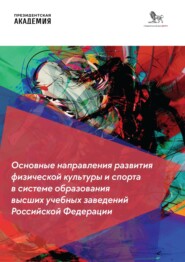По всем вопросам обращайтесь на: info@litportal.ru
(©) 2003-2024.
✖
The German Classics of the Nineteenth and Twentieth Centuries, Volume 07
Настройки чтения
Размер шрифта
Высота строк
Поля
"All gone, all dead!" sighed John.
In the evening, when it had grown dark and the moon was shining, he was seen limping about the cemetery in the snow; he did not pray over any one grave, nor did he go very close to any, but he seemed to gaze fixedly at some of them from a distance. Thus he was found by Forester Brandes, the son of the murdered forester, whom the Baron had sent to bring John to the castle. Upon entering the living-room he looked about him timidly, as though dazed by the light, and then at the Baron who was sitting in his armchair; he had aged greatly but still had his old bright eyes, and the little red cap was still on his head, as it had been twenty-eight years ago; beside him was the Baroness, his wife, also grown old, very old.
"Now, John," said the Baron, "do tell me all about your adventures. But," as he surveyed him through his glasses, "you wasted away terribly there in Turkey, didn't you?" John began telling how Mergel had called him away from the hearth at night and said he must go away with him.
"But why did the foolish fellow ever run away?—I suppose you know that he was innocent?"
John looked down.
"I don't know exactly; I think it was on account of some forest affairs. Simon had all kinds of dealings, you know; they never told me anything about it, but I do not believe everything was as it should have been."
"But what did Frederick tell you?"
"Nothing but that we must run away, that they were at our heels. So we ran to Heerse; it was still dark then and we hid behind the big cross in the churchyard until it grew somewhat lighter, because we were afraid of the stone-quarries at Bellerfeld; and after we had been sitting a while we suddenly heard snorting and stamping over us and saw long streaks of fire in the air directly over the church-tower of Heerse. We jumped up and ran straight ahead in the name of God as fast as we could, and, when dawn arose, we were actually on the right road to P." John seemed to shudder at the remembrance even now, and the Baron thought of his departed Kapp and his adventures on the slope of Heerse.
"Remarkable!" he mused; "you were so near each other! But go ahead."
John now related how they had successfully passed through P. and across the border, telling how, from that point, they had begged their way through to Freiburg in Breisgau as itinerant workmen. "I had my haversack with me, and Frederick a little bundle; so they believed us," he went on. In Freiburg they had been induced to enlist in the Austrian army; he had not been wanted, but Frederick had insisted. So he was put with the commissariat. "We stayed over the winter in Freiburg," he continued, "and we got along pretty well; I did, too, because Frederick often advised me and helped me when I did something wrong. In the spring we had to march to Hungary, and in the fall the war with the Turks broke out. I can't repeat very much about it because I was taken prisoner in the very first encounter and from that time was a Turkish slave for twenty-six years!"
"God in Heaven, but that is terrible!" exclaimed Frau von S.
"Bad enough! The Turks consider us Christians no better than dogs; the worst of it was that my strength left me with the hard work; I grew older, too, and was still expected to do as in former years." He was silent for a moment. "Yes," he then said, "it was beyond human strength and human patience, and I was unable to endure it. From there I got on a Dutch vessel."
"But how did you get there?" asked the Baron.
"They fished me out of the Bosphorus," replied John. The Baron looked at him in astonishment and raised his finger in warning; but John continued. "On the vessel I did not fare much better. The scurvy broke out; whoever was not absolutely helpless was compelled to work beyond his strength, and the ship's tow ruled as severely as the Turkish whip. At last," he concluded, "when we arrived in Holland, at Amsterdam, they let me go free because I was useless, and the merchant to whom the ship belonged sympathized with me, too, and wanted to make me his porter. But," he shook his head, "I preferred to beg my way along back here."
"That was foolish enough!" said the Baron.
John sighed deeply. "Oh, sir, I had to spend my life among Turks and heretics; should I not at least go to rest in a Catholic cemetery?"
The lord of the estate had taken out his purse. "Here, John, now go and come back soon. You must tell me the whole story more in detail; today it was a bit confused. I suppose you are still very tired."
"Very tired," replied John; "and"—he pointed to his forehead—"my thoughts are at times so curious I cannot exactly tell how things are."
"I understand," said the baron; "that is an old story. Now, go. Huelsmeyer will probably put you up for another night; come again tomorrow."
Herr von S. felt the deepest sympathy with the poor chap; by the next day he had decided where to lodge him; he should take his meals in the castle and his clothing could, of course, be provided for too. "Sir," said John, "I can still do something; I can make wooden spoons and you can also send me on errands."
Herr von S. shook his head sympathetically. "But that wouldn't work so remarkably well."
"Oh, yes, sir, if once I get started—I can't move very fast, but I'll get there somehow, and it won't be as hard as you might think, either."
"Well," said the Baron, doubtfully, "do you want to try it? Here is a letter to P. There is no particular hurry." The next day John moved into his little room in the house of a widow in the village. He carved spoons, ate at the castle, and did errands for the Baron. On the whole he was getting along tolerably well; the Baron's family was very kind, and Herr von S. often conversed with him about Turkey, service in Austria, and the ocean. "John could tell many things," he said to his wife, "if he wasn't so downright simple."
"More melancholic than simple," she replied; "I am always afraid he'll lose his wits some day."
"Not a bit of it," answered the Baron; "he's been a simpleton all his life; simple people never go crazy." Some time after, John stayed away much longer than usual on an errand. The good Frau von S. was greatly worried and was already on the point of sending out people, when they heard him limping up the stairs.
"You stayed out a long time, John," she said; "I was beginning to think you had lost your way in the forest of Brede."
"I went through Fir-tree Hollow."
"Why, that's a long roundabout way! Why didn't you go through the Brede Woods?"
He looked up at her sadly. "People told me the woods were cut down and there were now so many paths this way and that way that I was afraid I would not find my way out. I am growing old and shaky," he added slowly.
"Did you see," Frau von S. said afterwards to her husband, "what a queer, squinting look there was in his eyes? I tell you, Ernest, there's a bad ending in store for him!"
Meanwhile September was approaching. The fields were empty, the leaves were beginning to fall, and many a hectic person felt the scissors on his life's thread. John, too, seemed to be suffering under the influence of the approaching equinox; those who saw him at this time said he looked particularly disturbed and talked to himself incessantly—something which he used to do at times, but not very often. At last one evening he did not come home. It was thought the Baron had sent him somewhere. The second day he was still not there. On the third his housekeeper grew anxious. She went to the castle and inquired. "God forbid!" said the Baron, "I know nothing of him; but, quick!—call the forester and his son William! If the poor cripple," he added, in agitation, "has fallen even into a dry pit, he cannot get out again. Who knows if he may not even have broken one of his distorted limbs! Take the dogs along," he called to the foresters on their way, "and, first of all, search in the quarries; look among the stone-quarries," he called out louder.
The foresters returned home after a few hours; no trace had been found. Herr von S. was restless. "When I think of such a man, forced to lie like a stone and unable to help himself, I—but he may still be alive; a man can surely hold out three days without food." He set out himself; inquiry was made at every house, horns were blown everywhere, alarms were sent out, and dogs set on the trail—in vain! A child had seen him sitting at the edge of the forest of Brede, carving a spoon. "But he cut it right in two," said the little girl. That had happened two days before. In the afternoon there was another clue. Again a child had seen him on the other side of the woods, where he had been sitting in the shrubbery, with his face resting on his knees as though he were asleep. That was only the day before. It seemed he had kept rambling about the forest of Brede.
"If only that damned shrubbery weren't so dense! Not a soul can get through it," said the Baron. The dogs were driven to the place where the woods had just been cut down; the searching-party blew their horns and hallooed, but finally returned home, dissatisfied, when they had convinced themselves that the animals had made a thorough search of the whole forest. "Don't give up! Don't give up!" begged Frau von S. "It's better to take a few steps in vain than to leave anything undone." The Baron was almost as worried as she; his restlessness even drove him to John's room, although he was sure not to find him there. He had the room of the lost man opened. Here stood his bed still in disorder as he had left it; there hung his good coat which the Baroness had had made for him out of the Baron's old hunting-suit; on the table lay a bowl, six new wooden spoons, and a box. Herr von S. opened the box; five groschen lay in it, neatly wrapped in paper, and four silver vest-buttons. The Baron examined them with interest. "A remembrance from Mergel," he muttered, and stepped out, for he felt quite oppressed in the musty, close room. The search was continued until they had convinced themselves that John was no longer in the vicinity—at least, not alive.
So, then, he had disappeared for the second time! Would they ever find him again—perhaps some time, after many years, find his bones in a dry pit? There was little hope of seeing him again alive, or, at all events, certainly not after another twenty-eight years.
One morning two weeks later young Brandes was passing through the forest of Brede, on his way from inspecting his preserve. The day was unusually warm for that time of the year; the air quivered; not a bird was singing; only the ravens croaked monotonously in the branches and opened their beaks to the air. Brandes was very tired. He took off his cap, heated through by the sun; and then he put it on again; but one way was as unbearable as another, and working his way through the knee-high underbrush was very laborious. Round about there was not a single tree save the "Jew's beech"; for that he made, therefore, with all his might, and stretched himself on the shady moss under it, tired to death. The coolness penetrated to his limbs so soothingly that he closed his eyes.
"Foul mushrooms!" he muttered, half asleep. There is, you must know, in that region a species of very juicy mushrooms which live only a few days and then shrivel up and emit an insufferable odor. Brandes thought he smelt some of these unpleasant neighbors; he looked around him several times, but did not feel like getting up; meanwhile his dog leaped about, scratched at the trunk of the beech, and barked at the tree. "What have you there, Bello? A cat?" muttered Brandes. He half opened his lids and the Hebrew inscription met his eye, much distorted but still quite legible. He shut his eyes again; the dog kept on barking and finally put his cold nose against his master's face.
"Let me alone! What's the matter with you, anyway?" Brandes was lying on his back, looking up; suddenly he jumped up with a bound and sprang into the thicket like one possessed.
Pale as death he reached the castle; a man was hanging in the "Jew's Beech-tree"; he had seen his limbs suspended directly above his face.
"And you did not cut him down, you fool?" cried the Baron.
"Sir," gasped Brandes, "if Your Honor had been there you would have realized that the man is no longer alive. At first I thought it was the mushrooms!" Nevertheless Herr von S. urged the greatest haste, and went out there himself.
They had arrived beneath the beech. "I see nothing," said Herr von S. "You must step over there, right here on this spot!" Yes, it was true; the Baron recognized his own old shoes. "God, it is John! Prop up the ladder!—so—now down—gently, gently! Don't let him fall! Good heaven, the worms are at him already! But loose the knot anyway, and his necktie!" A broad scar was visible; the Baron drew back. "Good God!" he said; he bent over the body again, examined the scar with great care, and in his intense agitation was silent for some time. Then he turned to the foresters. "It is not right that the innocent should suffer for the guilty; just tell everybody this man here"—he pointed to the dead body—"was Frederick Mergel."
The body was buried in the potter's field.
As far as all main events are concerned, this actually happened during the month of September in the year 1789.
The Hebrew inscription on the tree read: "When thou comest near this spot, thou wilt suffer what thou didst to me."
* * * * *
FERDINAND FREILIGRATH
THE DURATION OF LOVE[39 - Translator: M.G. in Chambers' Journal. Permission Bernhard Tauchnitz, Leipzig.] (1831)
Oh! love while Love is left to thee;
Oh! love while Love is yet thine own;
The hour will come when bitterly
Thou'lt mourn by silent graves, alone!

















